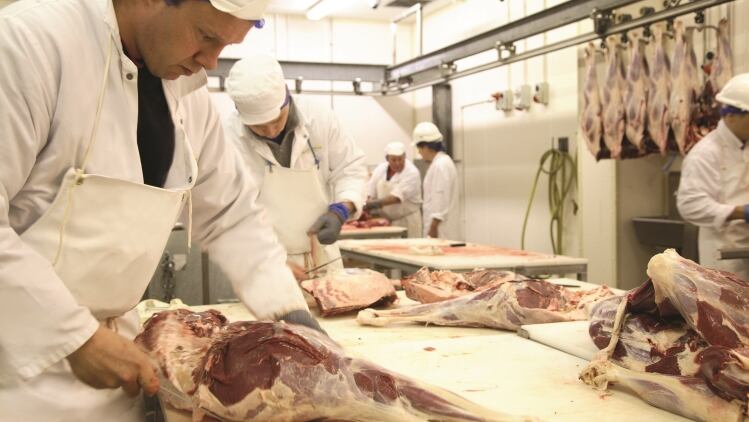In a new report penned by technical policy manager Anna Proffitt, the BMPA lays out the labour challenges that the industry faces. The research also examines the recruitment efforts that have already been undertaken and how firms plan to tackle this in the future.
Recruitment has been a significant challenge for members of the industry, with employers reporting vacancies taking anywhere from one to three months to fill, with some positions taking six months. This is much higher than the 4.5 week average experienced across the UK.
Most businesses reported a lack of available and suitably skilled workforce in their local area, which forced them to seek for more experienced workers abroad.
EU workers in UK meat
The BMPA also conducted a survey of its members to better understand the makeup of workers in their plants. It revealed that reliance on overseas labour had come down since 2018, but was still very high, with EU workers typically making up over 60% – and in some cases over 70% – of workforces.
To compensate for a local talent shortage, the BMPA urged the Government to guarantee an EU labour supply to maintain continuity, a supply the industry has enjoyed for the past 15 years.
Even a best-case scenario where Brits suddenly signed up in droves to work in the industry would still leave a two-year skills gap that would need to be filled with fully skilled workers. To this end, the BMPA called for butchers to be put on the Government’s Shortage Occupation List (SOL).
“Butchery is a skilled job requiring years of training and a high level of competency and dedication,” said the BMPA. “We are therefore calling for butchers to be put on the SOL, which includes associated jobs such as butchers assistant and slaughterman.
Reducing pressure and plugging the gap
“This would allow industry to continue to recruit migrant workers and reduce the pressure to ensure a UK-supply of trained workers in the long term and plug the skills gap at least in the short term.”
The report also covered the work done by the meat industry to use automation on production lines to help combat labour shortages and the problems that have arisen as a result.
Machinery has been brought in by a number of businesses at high cost, only for it to be removed soon after once it was made clear it underperformed compared to people. One such example was the process of deboning pork legs, where the lack of precision offered by the machine meant the yield was 2% lower.
“Meat processors must be able to adapt quickly and economically to retailers’ specifications, such as different pack sizes/formats,” the report added.
“Using people instead of machines in meat processing plants allows the plants to stay flexible, adaptive and profitable. If there were opportunities in the future for businesses to automate further, then there is industry willingness to look into its feasibility.”
Unknown impact of COVID-19
While the impact of COVID-19 on recruitment was expected to be large, the exact effect remains unknown.
Commenting on the report, Proffitt added: “While it’s hoped that more UK workers will now be attracted into the profession, there still remain significant challenges to fill skilled positions. Even if more British people step forward for training, there would still be a minimum two year skills gap (the time it takes to train a new recruit) which would need to be filled by fully skilled workers.
“These skilled workers can only come from abroad and that’s why BMPA is calling on the Home Office to include butchers on the Shortage Occupation List.”
Proffitt called on the government to work with the industry to help attract more young people, as well as those looking to switch their career, in to the industry and provide easier access to the Apprenticeship Levy fund to finance their training.
Meanwhile, Government plans to quarantine anyone entering the country for 14 days could have an impact on the labour market and the ability to pick the UK harvest.





